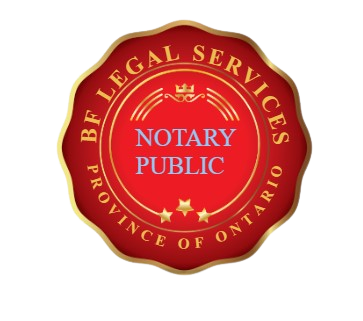What is the best type of notary public stamp?
The most common types of notary public stamps include embossing seals, pre-inked stamps, and self-inking stamps. Each type has its advantages and considerations.
- Embossing seals are traditional notary stamps that use a metal plate to create a raised impression on the paper. They are durable and provide a professional and elegant look to your documents.
- Pre-inked stamps contain ink within the stamp itself, eliminating the need for a separate ink pad. They offer a clean and convenient option.
- Self-inking stamps have an integrated ink pad that automatically re-inks the stamp after each use. They are easy to use and provide consistent impressions.
The best type of notary stamp for you will depend on your personal preference, the volume of documents you notarize, and the specific requirements of your jurisdiction.
Understanding the importance of notary public stamps
Notary public stamps are crucial in legal and business contexts as they serve as an official seal of authenticity for important documents. They signify that a notary has verified the signer’s identity and witnessed the signing, adding trust and credibility. This helps ensure documents are recognized and accepted by various entities, preventing fraud and protecting transaction parties. Using a notary stamp demonstrates professionalism and a commitment to upholding the law, reflecting a serious approach to notarial services.
What is different about a notary stamp?
A notary stamp is specifically designed for notarial acts and includes essential information such as the notary’s name, commission number, and expiration date. It also typically features the state or jurisdiction where the notary is commissioned.
What sets notary public stamps apart from a regular rubber stamp is their legal significance. Notary stamps are regulated by state laws and must meet certain requirements regarding size, design, and content. They must be used by specific guidelines to ensure their validity and acceptance.
The use of a notary stamp adds an extra layer of authenticity and validity to documents, making them legally binding and enforceable.
What is the difference between a seal and a stamp?
The terms ‘seal’ and ‘stamp’ are often used interchangeably when referring to notary supplies, but there is a slight difference between the two. A notary seal is an impression made using an embossing seal, while a notary stamp is an impression made using a stamp with ink.
Both the seal and stamp serve the same purpose of authenticating documents, but the choice between the two depends on personal preference and the legal requirements of your jurisdiction. Some states may require the use of a seal, while others may allow the use of a stamp.
It’s important to check the laws and regulations in your state to determine whether you should use a seal, a stamp, or both.
What is the best size for a notary stamp?
The size of a notary stamp is an important consideration as it affects the readability and visual appearance of the stamp impression. The most common sizes for notary stamps are 1 inch by 2.5 inches and 1.5 inches by 3 inches.
A smaller stamp size can be more convenient to carry and use, especially if you frequently notarize documents on the go. However, a larger stamp size may provide a more noticeable and professional impression.
When choosing the best size for your notary stamp, consider your personal preference, the space available on the documents you notarize, and any specific requirements set by your state or jurisdiction.
Choosing the right design and size for your stamp
When customizing your notary public stamp, you have the opportunity to choose the design and size that best represents your professional image. The design options typically include various font styles, border options, and the inclusion of your notary commission information.
Consider selecting a design that aligns with your business or personal branding. You may also want to include your name, commission number, and expiration date to comply with your state’s requirements.
In terms of size, balance readability with visual appeal. A legible and clear impression is crucial, but a larger size may allow for more visibility and impact.
Remember to review your state’s guidelines regarding design and size to ensure compliance with notary public regulations.
Customizing your notary public stamp
Customizing your notary public stamp allows you to personalize it with your name, commission number, and other relevant information. This customization ensures that your stamp is unique to you and meets the requirements set by your state or jurisdiction.
When customizing your stamp, consider the font style, size, and layout of the text. Ensure that the information is clear, legible, and aligned properly on the stamp.
In addition to personalization, you may have the option to choose the color of the ink used in your stamp. Black ink is the most common choice, but some states allow the use of other colors.
By customizing your notary public stamp, you can create a professional and distinctive impression on the documents you notarize.
Ensuring compliance with notary public regulations
As a notary public, it is essential to ensure compliance with the regulations and guidelines set by your state or jurisdiction. This includes following the rules regarding the use of notary stamps.
Make sure that your stamp meets the requirements for size, design, and content specified by your state. Verify that your commission information is accurate and up to date. Familiarize yourself with any additional guidelines, such as the use of a seal or the acceptable ink color.
By staying informed and adhering to the regulations, you can maintain the integrity of your notarial acts and avoid potential legal issues.
What does it mean when a document is stamped by a notary?
When a document is stamped by a notary, it signifies that the notary has verified the identity of the signer and witnessed the signing of the document.
The notary stamp serves as an official seal of authenticity and verification. It confirms that the document is genuine, that the signer is who they claim to be, and that the necessary legal requirements have been met.
The presence of a notary stamp adds credibility and trust to the document, making it more likely to be recognized and accepted by banks, courts, government agencies, and other entities.
Documents stamped by a notary are considered legally binding and enforceable, assuring all parties involved in a transaction.
Tips for maintaining and using your custom notary public stamp
To ensure the longevity and effectiveness of your custom notary public stamp, it’s important to follow proper maintenance and usage practices.
Firstly, store your stamp in a cool and dry place to prevent ink from drying out or the stamp from warping. Keep it away from direct sunlight and extreme temperatures.
Clean your stamp regularly to remove any ink residue. Use a mild soap or stamp cleaner and a soft cloth or sponge. Avoid using harsh chemicals or abrasive materials that could damage the stamp.
When using your stamp, apply even pressure to create a clear and legible impression. Make sure the stamp is aligned properly on the document to avoid smudging or incomplete impressions.
Lastly, be mindful of your stamp’s ink level. Refill or replace the ink pad as needed to maintain consistent and high-quality impressions.
By following these tips, you can ensure that your custom notary public stamps remain in good condition and produce professional and reliable impressions.
“Looking for reliable notary public to authenticate your important documents? Contact us today to explore our range of high-quality notary services.”

